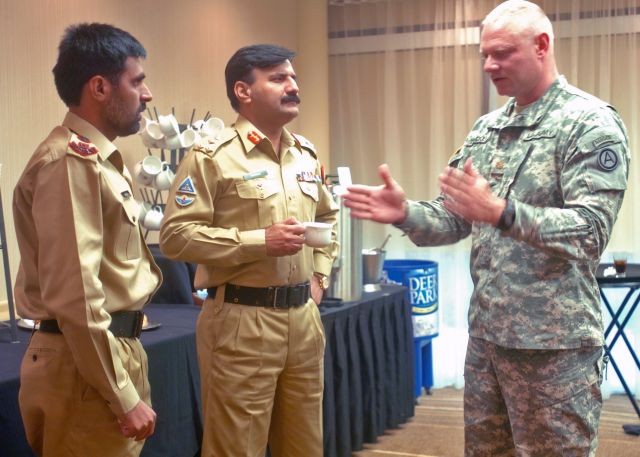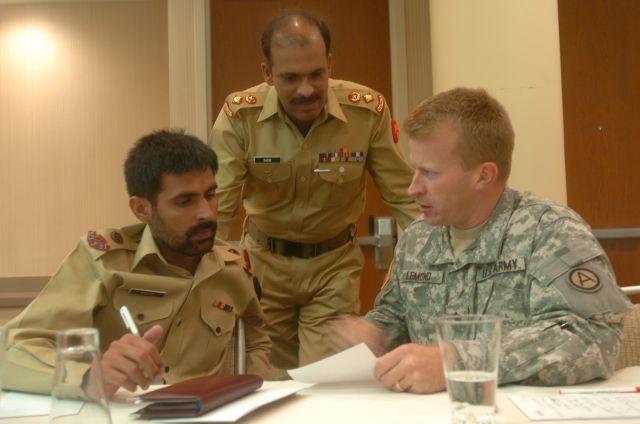Senior leaders from the Pakistan and U.S. Army met in Atlanta, Ga., July 20-24 for Third Army/U.S. Army Central's Counterinsurgency seminar.
As Lt. Gen. William G. Webster, Third Army/USARCENT commanding general, delivered the opening comments, he stressed the importance of the week-long event.
"We consider it a rare privilege to be able to meet face-to-face with our Pakistani counterparts to have an exchange of ideas and tactics, techniques and procedures for success in counterinsurgency operations," Webster said.
The seminar not only provided a venue for discussion and learning, it fostered relationships amongst the two countries while they studied past events in order to shape future operations.
"This week we presented some lessons learned in counterinsurgency," Col. Daniel Roper Director, U.S. Army and Marine Corps Counterinsurgency Center, said. "We used those lessons to stimulate conversation and took our previous experiences in Iraq and applied them to our current status. We exchanged our viewpoints on the challenges in Afghanistan, Pakistan and South Asia at large."
The Pakistan military played a key role in the seminar, Maj. Tony Thacker, Third Army/USARCENT Fires, explained.
"Pakistan is a pivotal country in our current operations," Thacker said. "The Pakistan Military actually just came out of fighting the insurgency over there to bring their knowledge to us and for us to talk about certain practices we have used both historically and more recently in Iraq and Afghanistan."
"Problems change as you engage them," Roper said. "Even if you fix it, another problem arises. You have to think in the second and third orders and not just fix the first order. We all have common challenges. We may see them from slightly different perspectives, but at the end of the day, we are Soldiers trying to solve complex problems."
Thacker agreed explaining the importance of the seminar in building relationships to work together on overseas contingency operations.
"When you talk about building trust and relationships, the more often you have schooling and conferences together, the more this will be fostered," Thacker said. "The more interaction we have will bring trust on both sides."
Brigadier Farhat Abbas Sani, Pakistan Military Air Defense brigade, also noted the impact the seminar had on his team.
"Myself and my team have learned a lot," Farhat said. "There is a lot we can carry home and apply in our home environment. We are complementing each other and being coalition partners, our aims and objectives are the same; to bring peace and stability to the region."






Social Sharing